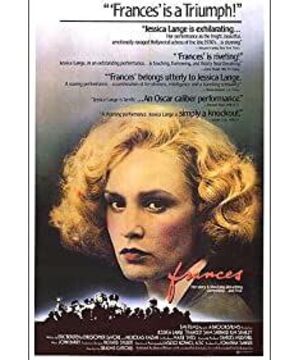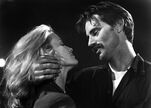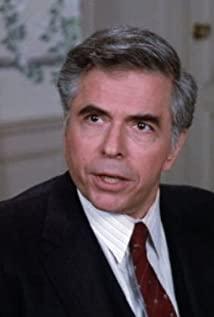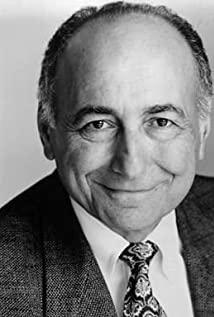The once-popular Hollywood actress Francis Farmer (1913-1970) was diagnosed with bipolar disorder, delusional schizophrenia and early-onset dementia at the same time, and spent more than ten years in many mental illnesses. In the hospital, she was subjected to almost "cruel" psychiatric treatments, and there were even rumors that relatives had undergone a prefrontal lobectomy on her.
As the saying goes, the higher you climb, the heavier you fall. When she is beautiful, her performances are popular all over the country. When she is down, she is cast aside and persecuted.
Here, I will combine Francis's life experience, various evaluations of her and the background of the times, and analyze the inevitability of some tragedies in her embarrassing life.
1. Deviant and talented
Francis, an 18-year-old female high school student, stood on the podium with an age-inappropriate composure and ease, as if the content of the speech was not prepared, but simply expressed her heart: "No one ever told me 'you Be a fool, the God in your head doesn't exist. 'I don't think God was murdered, but simply died for many years...' Not only did the speech get the thinking girl a match The champion, who also made headlines in Seattle newspapers, was exposed to the public for the first time.
In the 1940s, the United States was in the midst of an economic crisis, and a large number of unemployed people were in anxiety and fear. At such a moment, she took a stab at her sword and exposed her insistence that "God is dead" to the public, and desperate people also Therefore, the seeds of disgust were planted for her, and when the time came, it would germinate.
After graduating from high school, Francis studied journalism at the University of Washington, while working several jobs to pay for his tuition. He also accidentally discovered his interest and talent in drama, and served as the heroine of many campus dramas. In her senior year she won the top prize given by the left-wing newspaper - a trip to the Soviet Union. The desire for the Moscow Art Theater led her to go to the Soviet Union alone, despite her mother's extreme opposition, and it led her to discover that she was not only an atheist but also an out-and-out communist.
At a young age, she received an olive branch from Paramount Pictures as soon as she graduated, and on her 22nd birthday, she got a 7-year contract. Most of her films since then have been huge hits, and her strong personality has led to highly polarized reviews. William Wheeler said: "It was unbearable to work with her, and that was the best comment I could give her." And Howard Hawks made no secret of his admiration for her: "She is the most Talented actress." Although she was cold and unlovable when confronted by reporters, and parted ways with Hollywood because she couldn't accept the company's over-packaging of her image, her career path was generally better than others. Said it was smooth sailing.
Originally, she could continue to do the job she loves and live a carefree life, but soon a man appeared in her life. The betrayal of this man made her grief-stricken and opened up the Pandora in her heart. box.
2. Theatre career: a turning point in life
After leaving Hollywood, she came to the theater determined to forge her own path as a serious actor. It was then that she met left-wing playwright Clifford Odets, who co-starred in Golden Boy, bringing him one of the biggest hits of all time. In the process, Clifford gave Francis countless suggestions with the delicacy and insight of a playwright. It happened that they had the same political stance, so they talked about everything, and the relationship became more and more intimate. .
His devotion and talent to the play made Francis, who was only 24 years old, fascinated by him, and began an underground affair without commitment.
Perhaps overconfident in her own beauty and mind, she never imagined that Clifford would abandon her and reunite with his wife. At the same time, the actresses who brought money into the group terminated their cooperation with Francis. After Francis brought them applause and benefits, they were abandoned in an instant, which was unacceptable to her.
The unsatisfactory relationship and career made her start a long-term depression and alcoholism, and the mental damage made her gradually show an "anti-social" tendency. She drove illegally, cursed at law enforcement officers, and violently attacked stylists. When the police arrested her, she was naked and struggling to resist. She was escorted to the police station naked, and she lost her dignity. So the public began to hate her, fear her, and for them such a person needs to be imprisoned and treated. The judge's verdict started her desperate years in a mental hospital. For Francis, the "freedom" she had pursued all her life was deprived, and her due "civil rights" did not exist.
3. Horrible mental hospital, surgery to remove the frontal lobe
In the 1930s, the treatment and research of mental illness was very immature. It is conceivable that a place like a mental hospital would gather mad people together and become a "testing base". And so it was, where they treated Francis for 90 days of insulin shock, hydrotherapy and electric shocks, whichever sounded tingling. Francis later said: "These treatments, which were intended to be relaxing, didn't work. She didn't complain about the hospital, but it didn't help her."
The widely circulated surgery to remove the frontal lobe appeared only in a biographical novel. The author admitted in court that it was fabricated, and it was not verified in hospital records and family interviews that Francis had ever undergone this operation. Operation. Her mother had fought for her custody many times, and they did not get along well. According to Francis, they threatened each other, quarreled, collapsed on the kitchen floor exhausted, and hated each other as if they were enemies.
After leaving the mental hospital, her life became dull. She had two marriages that ended in divorce. In her spare time, she painted, wrote poetry, and wrote an autobiography. He was diagnosed with esophageal cancer due to heavy smoking and died in 1970.
4. The source of madness
Francis's extremes are obvious to all, and this extreme may stem from the repression of values that do not conform to the mainstream society, or from his mother's extreme desire for control, or from alcoholism and drug abuse after being hurt by love. of her nerves.
To be a beautiful girl who doesn't care about politics may be the most correct and happiest way for her, but it means philosophical suicide, which is more painful than physical destruction.
Human beings are limited by the needs of survival and must make certain compromises. Francis may not know this truth, but he still resolutely walks his own way and lets others say it. Although her way of survival may not be worthy of our adoption, her courage is still worthy of our respect.
View more about Frances reviews











